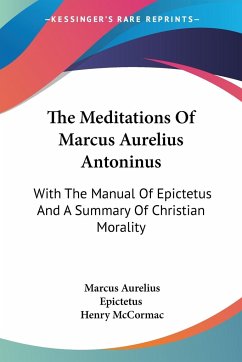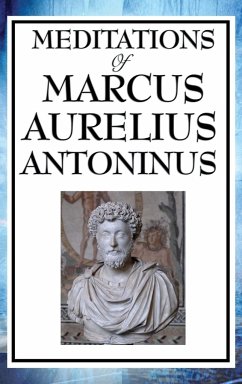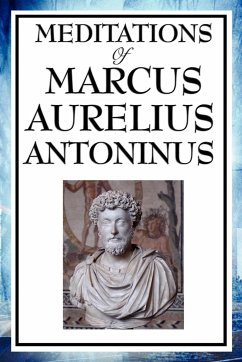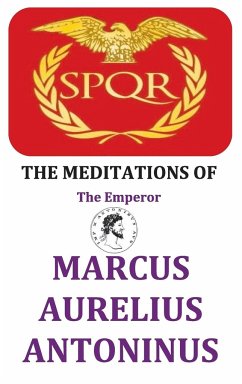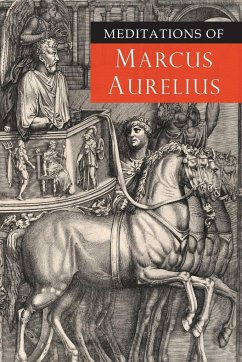
Meditations of Marcus Aurelius
Versandfertig in 1-2 Wochen
9,99 €
inkl. MwSt.
Weitere Ausgaben:

PAYBACK Punkte
5 °P sammeln!
2019 Reprint of 1957 Edition. Abridged Edition. Full facsimile of the original edition and not reproduced with Optical Recognition Software. Illustrated by Paul McPharlin and translated by George Long. The Meditations has become a classic statement of the Stoic style or philosophy of life. Written in Greek by an intellectual Roman emperor without any intention of publication, the Meditations of Marcus Aurelius offer a wide range of fascinating spiritual reflections and exercises developed as Marcus Aurelius struggled to understand himself and make sense of his world. Spanning from doubt and de...
2019 Reprint of 1957 Edition. Abridged Edition. Full facsimile of the original edition and not reproduced with Optical Recognition Software. Illustrated by Paul McPharlin and translated by George Long. The Meditations has become a classic statement of the Stoic style or philosophy of life. Written in Greek by an intellectual Roman emperor without any intention of publication, the Meditations of Marcus Aurelius offer a wide range of fascinating spiritual reflections and exercises developed as Marcus Aurelius struggled to understand himself and make sense of his world. Spanning from doubt and despair to conviction and exaltation, they cover such diverse topics as the question of virtue, human rationality, the nature of the gods and the values of leadership. While the Meditations were composed to provide personal consolation, Marcus eventually created one of the greatest of all works of philosophy: a series of wise and practical aphorisms that have been consulted and admired by statesmen, thinkers and ordinary readers for almost two thousand years. A central theme to Meditations is the importance of analyzing one's judgment of self and others and the development of a cosmic perspective. As he said "You have the power to strip away many superfluous troubles located wholly in your judgment, and to possess a large room for yourself embracing in thought the whole cosmos, to consider everlasting time, to think of the rapid change in the parts of each thing, of how short it is from birth until dissolution, and how the void before birth and that after dissolution are equally infinite". He advocates finding one's place in the universe and sees that everything came from nature, and so everything shall return to it in due time. Another strong theme is of maintaining focus and to be without distraction all the while maintaining strong ethical principles such as "Being a good man".




